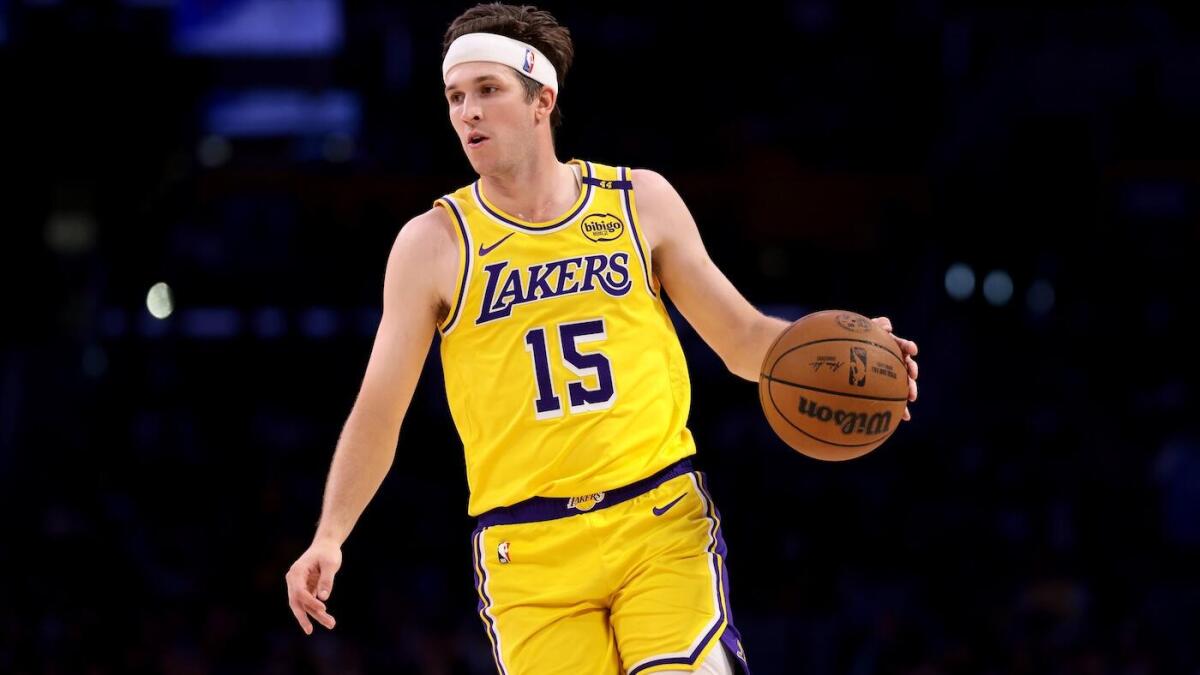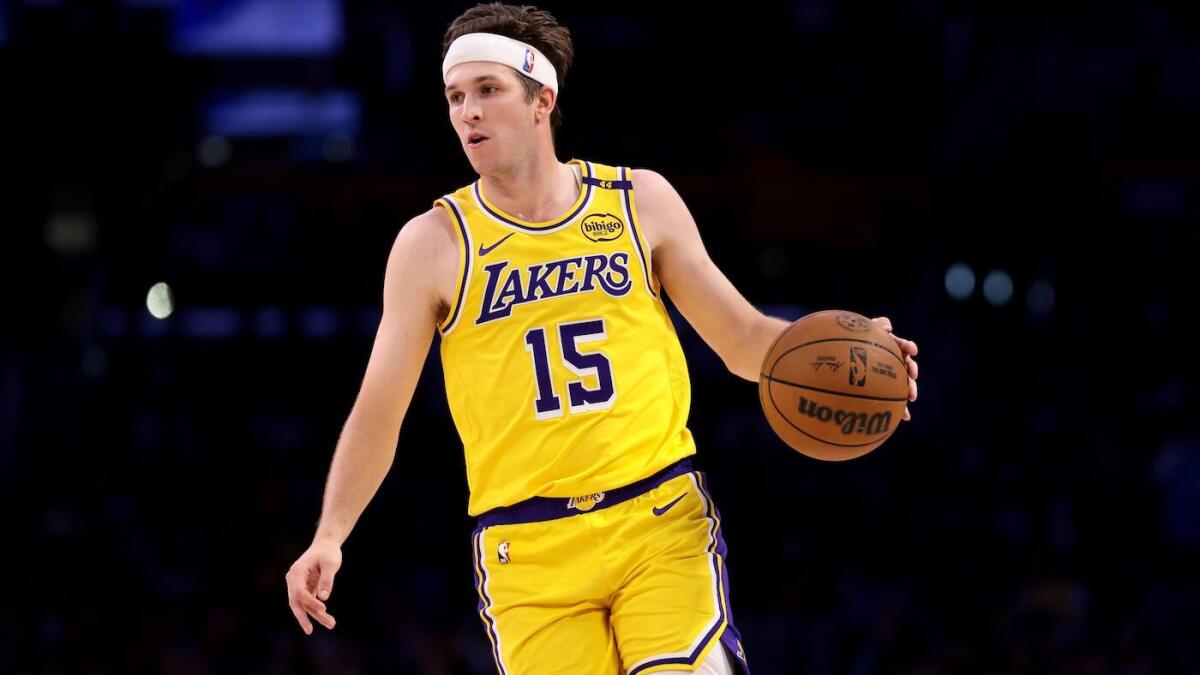Austin Reaves’ decision to decline an $89.2 million contract extension with the Los Angeles Lakers has sent shockwaves through the NBA, sparking discussions about player value, team strategy, and the evolving dynamics of modern basketball contracts. This move, while financially risky, underscores a broader shift in how players and teams approach long-term commitments in an increasingly player-driven league.
The Gravity of Reaves’ Decision
Austin Reaves’ journey from an undrafted free agent to a key starter for the Lakers is a testament to his resilience and skill. His initial two-way contract and subsequent four-year, $53.8 million deal in 2023 were already impressive achievements, but his decision to turn down a maximum extension is a bold statement. Reaves’ value to the Lakers is undeniable—his double-digit scoring, playmaking, and defensive versatility make him a cornerstone of the team’s success alongside LeBron James and Anthony Davis. However, by declining the extension, Reaves is betting on his ability to command an even higher salary in the future, a move that reflects both his confidence and the strategic acumen of his camp.
Understanding the Why
Reaves’ decision is rooted in sound financial logic. Under the current Collective Bargaining Agreement (CBA), the Lakers could only offer him a four-year, $89.2 million extension due to his salary history and status. However, by waiting until 2025, Reaves could enter unrestricted free agency, where teams with cap space might offer significantly higher deals. Projections suggest that the salary cap could rise substantially by then, potentially allowing Reaves to secure a contract worth over $100 million, with annual salaries approaching $30 million. This strategy is not without risk—injuries or a decline in performance could diminish his market value—but the potential upside is too enticing to ignore.
Impact on the Lakers and Their Strategy
For the Lakers, Reaves’ decision presents both challenges and opportunities. His current contract, which pays him $13.5 million and $14.9 million over the next two seasons, is a steal for a starting-caliber guard. This financial flexibility allows the Lakers to retool their roster without overcommitting to long-term deals, a crucial advantage in a league where cap management is paramount. However, the Lakers must also consider the long-term implications of Reaves’ decision. If he continues to excel, he could become a free-agent prize in 2025, attracting offers from teams with more cap space and a clearer path to contention. The Lakers will need to balance their immediate needs with the risk of losing Reaves without compensation, a scenario that has played out with other key players like Alex Caruso and Malik Monk.
The Market for Austin Reaves
Reaves’ skill set—versatile defense, efficient shooting, and playmaking—makes him a highly coveted commodity in the NBA. As the league continues to prioritize positionless basketball, players like Reaves, who can guard multiple positions and contribute on both ends of the floor, are in high demand. His age (26) and prime years ahead of him position him as a potential All-Star and franchise cornerstone for any team willing to invest in him. Recent contracts for similar players, such as Tyler Herro, Jordan Poole, and Fred VanVleet, suggest that Reaves could command a salary in the $20–$30 million range annually if he continues to develop. This market reality underscores the wisdom of his decision to wait for unrestricted free agency, where he can maximize his earning potential.
Why Not Just Trade Him Now?
While trading Reaves now might seem like a prudent move to secure assets before his value potentially diminishes, the Lakers have compelling reasons to hold onto him for at least the next two seasons. His contract is highly favorable, and his presence on the team is invaluable for maintaining continuity and chemistry. However, if the Lakers struggle to contend during this period, trade rumors will inevitably surface. Teams looking to add a proven guard at a discount might make aggressive offers, but the Lakers must weigh the short-term benefits of a trade against the long-term risks of losing Reaves for nothing in free agency. The decision will ultimately hinge on the team’s performance and their ability to convince Reaves that the Lakers remain a viable destination for his prime years.
Franchise Optics: Loyalty Versus Negotiation
The narrative of undrafted players “owing” their teams a discount or loyalty is a myth that Reaves’ decision debunks. In the NBA, contracts are business transactions, not sentimental gestures. Reaves’ move is a reminder that players, like teams, are entitled to pursue the best possible outcomes for their careers. The Lakers, as a storied franchise, may assume they can retain their homegrown talent, but recent history shows that financial incentives often outweigh loyalty. Players like Caruso and Monk have left for better opportunities, and Reaves’ situation could follow a similar trajectory unless the Lakers can offer a compelling case for his future with the team.
The Fan Perspective: Fear and Frustration
Lakers fans are understandably divided over Reaves’ decision. On one hand, there is frustration at the prospect of losing a key player without receiving anything in return. On the other hand, there is admiration for Reaves’ willingness to bet on himself and his future. The fanbase has seen this scenario play out before, with homegrown talent leaving for greener pastures, and the anxiety is palpable. However, most fans recognize that Reaves’ decision is a calculated risk that could pay off handsomely for both him and the Lakers if he continues to excel.
What Comes Next
As the 2024-25 season unfolds, Reaves will be under intense scrutiny. Every game will be a referendum on his value, both to the Lakers and to potential suitors. The trade deadline will bring heightened speculation, and if the Lakers underperform, the pressure to trade Reaves for assets will grow. However, unless there is a significant shift in the team’s trajectory or a blockbuster trade opportunity, Reaves is likely to remain with the Lakers through the end of his current contract. In the meantime, his camp will closely monitor the league’s salary cap projections and the financial landscape of potential free-agent destinations.
A New Normal in NBA Contract Strategy
Reaves’ decision is emblematic of a broader trend in the NBA, where players are increasingly leveraging their market value to secure the best possible contracts. The days of players signing long-term deals out of loyalty or fear of missing out are fading, replaced by a more strategic approach to contract negotiations. Teams must now navigate this new reality, balancing the need to retain key players with the financial constraints of a rapidly evolving salary cap.
Final Thoughts: Betting On Yourself, Lakers at the Crossroads
Austin Reaves’ decision to decline an $89.2 million extension is a bold move that reflects both his confidence in his abilities and the strategic acumen of his camp. For the Lakers, this decision is a microcosm of the challenges facing star-driven franchises in the modern NBA. The team must now decide whether to build around Reaves and other key players or pivot to a new direction. The coming seasons will be pivotal, as the Lakers seek to balance their immediate contender aspirations with the long-term goal of sustaining success. Reaves’ journey is far from over, and his decisions will continue to shape the narrative of the Lakers and the NBA as a whole.












